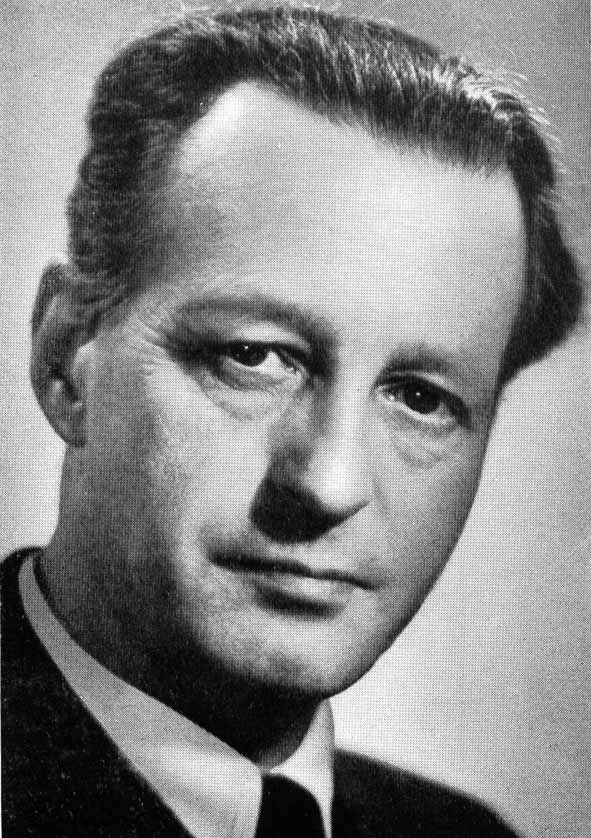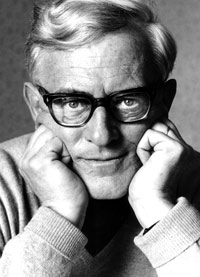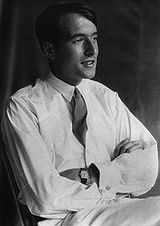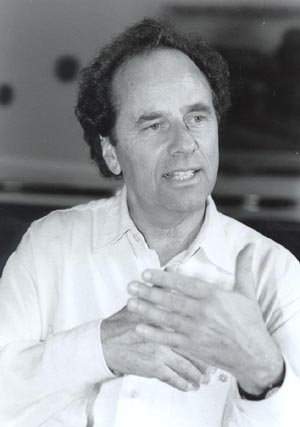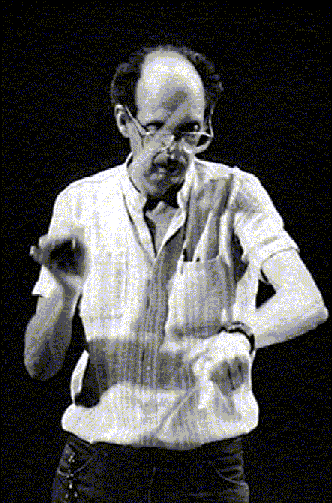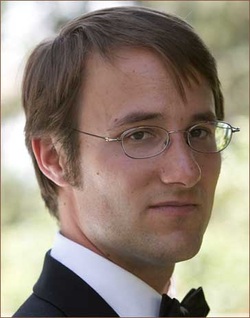Share This
Album at a Glance
Tags
Related Posts
Swiss Aspects: Orchestral Music from Argovia 1945-1970 / Douglas Bostock
Posted by Paul Ballyk on Nov 10, 2014 in Modern | 0 comments
This recent release from Coviello Classics titled Swiss Aspects presents live recordings from concerts marking the fiftieth anniversary of the Argovia Philharmonic. Its subtitle reads Orchestral Music from Argovia 1945-1970. This sent me to Google maps where I discovered Argovia is one of the northern cantons of Switzerland and is among the most densely populated regions of the country. The Argovia Philharmonic is conducted by Douglas Bostock. Both the performances and engineering are superb. This thoroughly satisfying album includes three world-premiere recordings and seems not to have received a fraction of the attention it merits from the critical press.
The program is arranged chronologically. The first work, Fantasie II, Op. 34 by Walther Geiser (1897-1993) was completed in 1945 and is a reflection on the war that had just come to a close. Written in a late-Romantic style it's a somber work, with a dark and ominous opening played by contrabassoon and double basses, quickly followed by an urgent allegro. This sixteen minute piece makes for a deeply satisfying listening experience.
The Geiser is followed by Marche fantasque by Heinrich Sutermeister 1910-1995), written in 1950. If you are listening to the album excerpt in the right sidebar as you read, this is the piece you are hearing. Sutermeister's potent orchestration is apparent from the opening bars for piano, bassoons and English horn. The trumpets later add a portentous, martial fanfare to the mix as the work slowly builds to its sudden conclusion. We can hear that Sutermeister had a flair for the dramatic in this second fine work from the album.
The remaining pieces are also compelling, effective compositions. From the opening of Peter Mieg's neo-classical Concerto da Camera (1952) with its overtones of Stravinsky and Bartók you sense how important the rhythmic element is to the work. This is followed by János Tamás' (1936-1995) Kodály and Bartók inspired Serenade for small orchestra. The final work on the album is the aptly-named Quasars, Op. 69 by Ernst Widmer (1927-1990). This piece is strikingly more avant-garde than the others. In this slowly changing, free-form composition, Widmer makes use of many modern techniques including tone clusters, glissandi, pulsating tones and bent notes.
This is a fine collection of music by five virtually unknown composers whose works sit well together. To varying degrees, these pieces have in common intriguing and effective formal structures, largely tonal complexions and colorful orchestration. It's one of the most outstanding collections of mid-twentieth century orchestral music I've come across in quite some time. For the adventurous listener, it's urgently recommended.
This recording presents an exciting cross-section of works by Argovia composers (Switzerland) who have been unjustly neglected in the concert hall. This is probably due in part to the fact that many Swiss composers were committed to a somewhat conservative neoclassical style, which was vehemently rejected by the avant garde, particularly after the Second World War.
From a historical distance this estimation is changing. All the works date from the postwar years, and are characterized by a moderate style, primarily influenced by tonality, clear in form, yet varied and distinctive in their compositional structure.
The Argovia Philharmonic has used its 50th anniversary as an opportunity to devote itself to its musical roots. This CD is a live recording of the official gala concert on 28 April 2013.
Source: Coviello Classics
|
Walther Geiser, composer Walther Geiser (1897-1993) was a Swiss violist, conductor, composer and music pedagogue. Geiser studied composition with Robert Suter and violin with Franz Josef Hirt at the Basel Conservatory (1917-1920). He went to Cologne (where he studied violin with Eldering) and Vienna, then to Berlin. From 1920 to 1923 he took further studies of composition with Ferruccio Busoni at the Akademie der Künste in Berlin. In 1924 Walther Geiser became a teacher at the Basel Conservatory, where he taught violin, chamber music, composition as well as conducting. Later he also conducted the orchestra of this Conservatory. He was active at the Conservatory until 1963. Geiser was a long-time member of the Basler String Quartet playing viola. He conducted numerous radio concerts and performances of symphonies. From 1954 to 1972 he was conductor of the Basler Bach-Chor. He also managed the Basler section the “Internationalen Gesellschaft für Neue Musik” as their president. In addition he was member of the Tonkünstlervereins (artist association) of Switzerland. As a composer Walther Geiser generally followed a late Romantic path. His output includes works for choir, organ and orchestra as well as chamber music, piano pieces and choral music. In his later works he made ever-great use of the 12-tone system. In 1962 he received the Composer Prize of the Swiss Tonkünstlervereins. |
|
|
Heinrich Sutermeister, composer Heinrich Sutermeister (1910-1995) was a Swiss opera composer. During the early 1930s he was a student at the Akademie der Tonkunst in Munich where Carl Orff was his teacher; Orff remained a powerful influence on his music. Returning to Switzerland in the mid-1930s, he devoted his life to composition. He wrote some works for the radio, starting with Die schwarze Spinne in 1936, before turning later to television opera. His most successful stage work was Romeo und Julia, premiered in Dresden in 1940 under Karl Böhm. Sutermeister’s penultimate stage work, Madame Bovary, first given in Zurich in 1967, is loosely based on Flaubert’s novel. With many characters cut, it consists largely of monologues for Emma Bovary, who was superbly sung by Anneliese Rothenberger. For his final opera, he adapted Eugène Ionesco’s play Exit the King (Le Roi se meurt). Premiered in 1985 at Bavarian State Opera, with only six characters, a tiny chorus and small orchestra, this work, in its modest way, is as effective as anything Sutermeister wrote. He was the brother of Hans Martin Sutermeister; their grandfather was the folklorist Otto Sutermeister. |
|
|
Peter Mieg, composer Peter Mieg (1906-1990) was a composer , painter and publicist, who influenced Swiss cultural life for decades in a variety of ways and made a name across national borders. During his school days Mieg received piano lessons from Carl Arthur Richter in Lenzburg; his first attempts at composition appeared by 1918. After graduation in 1927, Mieg studied art history, archaeology and music history in Zurich, Basel and Paris, and continued piano lessons with Emil Frey in Zurich and Hans Münch in Basel. In the years 1933-1939 he made the acquaintance of Paul Sacher and composers Bartok, Conrad Beck, Stravinsky, Honegger and Martinu, and from 1942 Mieg received instruction from Frank Martin.From the 1950s onward, Mieg began to make his mark as a composer, especially with the Concerto da Camera per archi, pianoforte e timpani (1952). As a result Mieg composed exclusively on ‘orders, (Tonhalle Orchestra Zurich, Radio Basel, Lucerne Festival Strings). Numerous performances at home and abroad set in, and Mieg enjoyed artistic partnerships and friendships with composers Alexander Tcherepnin and Gottfried von Einem and conductor Edmond de Stoutz. Mieg’s musical oeuvre comprises around 135 works in which he employs a distinctive brand of neo-classicism. The bulk of his output is in the area of instrumental concertos, chamber and piano music. |
|
|
János Tamás, composer János Tamás (1936-1995) was a Hungarian-Swiss composer, conductor and educator . Tamás studied in Budapest. After the Hungarian Revolution in 1956 he fled to Switzerland and completed his studies at the conservatories in Bern and Zurich. Beginning in 1961 he worked as a coach at the Stadttheater Zurich and from 1963 as principal conductor of the Städtebundtheater Biel-Solothurn. In 1969 he received the citizenship of the community Schönenwerd. At the Old Canton Aarau Tamás, he began working as a teacher in 1971. Tamás left behind some 120 compositions in a wide variety of genres and styles. |
|
|
Ernst Widmer, composer Ernst Widmer (1927-1990) was a Swiss-Brazilian composer, conductor, pianist and music pedagogue. Despite his father’s wishes that he dedicate himself to the visual arts, Widmer’s vocation for music was clear from an early age, and he was accepted to the Conservatory of Zurich under the tutelage of Willy Burkhard (composition) and Walter Frey (piano), where he graduated in 1950. In 1956, Widmer emigrated to Brazil, where he became a distinguished professor of the Federal University of of Bahia School of Music in Salvador. A renowned lecturer on composition, orchestration, improvisation, theory and other topics, he influenced three generations of notable Brazilian conductors and composers, including Benito Juarez, Lindembergue Cardoso, Fernando Cerqueira, Jamary Oliveira, Carlos Veiga, Tom Zé, Marco Antônio Guimarães, Agnaldo Ribeiro, Paulo Costa Lima and many others. Widmer passed away in 1990, leaving behind a vast oeuvre in a wide variety of styles and genres; his works display a keen originality and sense of curiosity, and bear witness to his great interest in the folk music of the state of Bahia in Brazil and his love for the melting pot that is Brazilian cultural and musical life. -J. Gram
|
|
|
Rafael Rütti, piano Rafael Rütti is a Swiss concert pianist. A native of Zug, a German-speaking city in central Switzerland, and studied piano at the Musikhochschule Zurich with Hans Schicker and Homero Franc Esch. Rütti is a winner of various prestigious competitions, and can be heard internationally as both a soloist and chamber musician on a regular basis. In addition to the classical-romantic repertoire he is very interested in contemporary music and has been a fervid champion of new works. Since February 2006 he has been teaching piano at the Conservatory of Zurich. Source: http://www.rafael-ruetti.com/ |
|
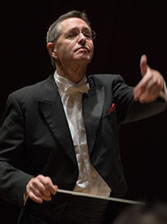
|
Douglas Bostock, conductor Douglas Bostock (b. 1955) is an English conductor. Born in Cheshire, England, he was educated at Sheffield University and in London with Sir Adrian Boult. He was one of Boult’s last private pupils before his retirement. Bostock is currently the Principal Conductor of the Aargau Symphony Orchestra in Switzerland and Principal Guest Conductor of Czech Chamber Philharmonic. He was the Principal Conductor of Tokyo Kosei Wind Orchestra from 2000 - 2006. He was Music Director and Principal Conductor of the Carlsbad Symphony Orchestra in the Czech Republic from 1991 to 1998 . He has served as the Principal Guest Conductor of the Czech Chamber Philharmonic (1992 - 2009) and the Munich Symphony Orchestra (1999 - 2006). Since 2003, He has been Music Director of the Hallwyl Opera Festival in Switzerland. In April 2012, Maestro Bostock took up the position as Guest Professor / Conductor at the Tokyo University of the Arts. He was invited to conduct a concert with the Geidai Symphony Orchestra in the presence of the Emperor and Empress of Japan for the third time. |
|
Argovia Philharmonic Orchestra Founded in 1963 as the “Aargau Symphony Orchestra,” the Argovia Philharmonic Orchestra has in recent decades become one of Switzerland leading professional orchestras. In addition to its active concert series in Argovia, the orchestra regularly appears abroad in such prestigious venues as the Tonhalle Zur, and is the resident orchestra in the triennial “Opera at Hallwyl Castle” festival. |
![]() About Paul Ballyk
About Paul Ballyk
all about Paul
Twitter •
| Thinking about purchasing this album?
Follow this link for more album details or to make the purchase. Buy it now |
“Not just recommended. Guaranteed.”
We stand behind every album featured on Expedition Audio. Our objective is to take the monetary risk out of music exploration. If you order this album from HBDirect.com and do not like it you can return it for a refund.
H. Sutermeister- Piano Concerto No. 2 (Daniel Hoexter)





